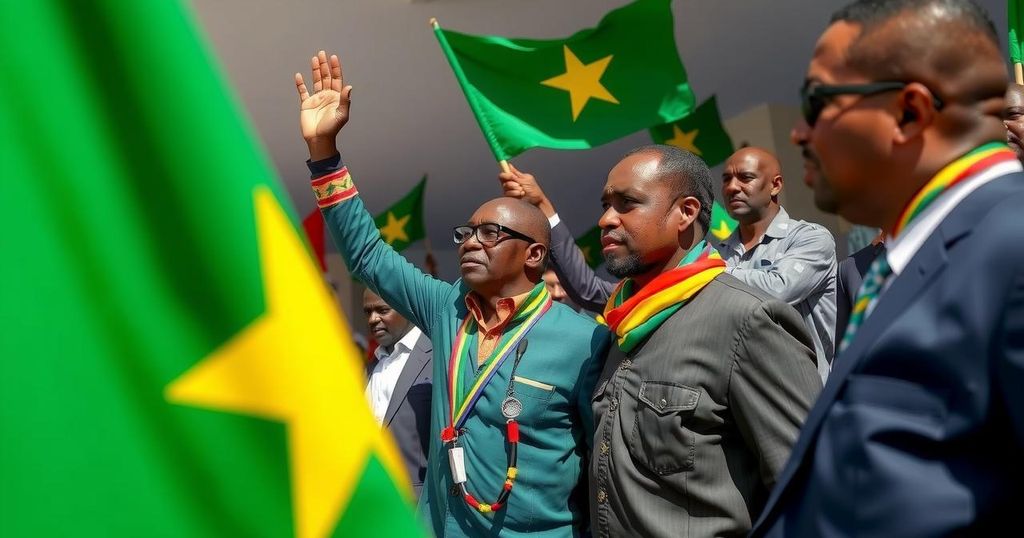Senegal’s ruling Pastef party has claimed a substantial victory in the recent legislative elections, securing a mandate for reform eight months after taking power. Voting was peaceful, with high ballot counts reported. While opposition groups allege electoral fraud, the government aims to address key issues such as unemployment and inflation, emphasizing their commitment to a reform agenda.
Senegal’s ruling Pastef party has proclaimed a significant victory in the recent legislative elections held on Sunday, securing a mandate to further their reform agenda. The voting process transpired without incident, and early counts indicated that between 90 to 95 percent of ballots had been tallied. President Bassirou Diomaye Faye’s party reportedly surpassed its opposition rivals in the initial results, thereby consolidating its authority eight months subsequent to assuming power. Following the elections, government spokesman Amadou Moustapha Ndieck Sarre expressed gratitude to the Senegalese populace, stating, “I pay homage to the Senegalese people for the large victory that it has given to Pastef.” The Pastef party’s success is deemed crucial given the backdrop of prior political strife, where an opposition-led parliament had impeded the government’s initial legislative efforts, prompting President Faye to dissolve the assembly and initiate snap elections. Voter sentiments reflected a desire for action against unemployment and economic challenges faced by the youth amidst rising inflation. Ousmane Sonko, an influential figure in the party, was appointed as prime minister, promising a leftist approach to governance, which includes a commitment to re-evaluate existing contracts in key sectors such as hydrocarbons and fishing. Despite lower turnout compared to previous presidential elections, the electorate continued to exercise their democratic rights, emphasizing resilience in Senegal’s electoral tradition. President Faye and Prime Minister Sonko urged for peaceful participation in the electoral process, underscoring that democracy functions within a framework of stability and non-violence. However, opposition figures claimed the elections were marred by significant irregularities, alleging efforts of fraud by the ruling party without providing detailed substantiation. The political environment remains tenuous, with past governance issues persisting as challenges for the current administration, while the populace grapples with unemployment rates exceeding 20 percent and a rising cost of living. The government has commenced initiatives to ameliorate these challenges, including price reductions on staple goods and the introduction of a long-term development strategy aimed at economic revitalization.
This article discusses the recent legislative elections in Senegal that resulted in a significant victory for the ruling Pastef party, led by President Bassirou Diomaye Faye. The elections followed a period of political turbulence characterized by opposition-led obstruction of the government’s agenda. The ruling party’s leadership has pledged a reformative economic program targeting key societal issues like unemployment and inflation. These elections were seen as critical for solidifying the new government’s position after a sudden dissolution of the parliament. The article reflects on electoral participation, the challenges of governance, and the socio-economic climate in Senegal.
The elections in Senegal represent not only a reaffirmation of support for the ruling Pastef party but also highlight the populace’s pressing concerns regarding economic stability and governance. With aspirations for reform and a stable political environment, the new administration led by President Faye and Prime Minister Sonko faces the challenge of delivering on its ambitious agenda amidst allegations of electoral misconduct from opposition factions. The commitment to social justice and economic transformation will be pivotal in addressing the significant issues affecting the Senegalese people, particularly the youth.
Original Source: www.france24.com






